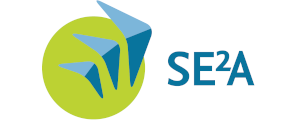
The reduction of viscous drag on future aircraft configurations plays a key role in the transformation of aviation towards climate-neutrality. To achieve significantly reduced viscous drag, laminar flow over the aircraft needs to be maintained employing either Natural Laminar Flow (NLF) and/or Hybrid Laminar Flow Control (HLFC). Mitigation of high financial risk and an acceleration of the design process is achieved with an extensive and integrated usage of digital tools including high-fidelity numerical methods to permit a reliable evaluation especially at the early stages of the design. To this end, computational fluid dynamics (CFD) plays a key role for the aerodynamic prediction. For the design of laminar aircraft, comprehensive laminar-turbulent transition prediction methods are needed. On the one hand, the transition prediction methods need to be accurate, robust, efficient and reliable. On the other hand, they need to be automatable, user-friendly and deliver transition locations on the complete surface of three-dimensional geometries. Transition prediction methods based on local, linear stability analysis via the eN-method or based on the non-linear and non-parallel Parabolized Stability Equations (PSE) have proven to be accurate and reliable but they are not fully automatable, expert knowledge is needed for their application and results are only provided along (stream)lines. A comparatively new class of boundary-layer transition prediction methods compatible with modern, unstructured CFD codes are local correlation-based transition models. As these models rely on quantities locally available in a CFD code, they are well suited for automatization and, they deliver transition locations over three-dimensional surfaces, which makes them a promising candidate for design and optimization tasks. However, as they rely on empirical transition criteria, it is necessary to ensure and demonstrate the required level of accuracy, robustness and reliability for general 3D configurations, which is the objective for this project.
The inhouse CFD-solver, the DLR TAU-Code, consists of local correlation-based models to predict laminar-turbulent transition. This includes extensions to predict transition due to crossflow instabilities. The extension is two-fold: the first approach relies on infinite swept wing theory using the 2.5D Falkner-Skan and Cooke equations to derive the extension and is only valid to predict laminar-turbulent transition on wing-like geometries with flows close to the 2.5D assumption. A second approach is based on the helicity which provides a measure how helical the flow is which relates to the rotated crossflow component in the boundary-layer. The latter approach does not rely on infinite swept theory and can be used for arbitrary 3D geometries. A new empirical transition criterion was introduced to identify the critical value of the helicity indicating transition onset. It was calibrated based on data from various experiments with a focus on 2.5D flows and clean wings. A comprehensive validation was performed including 2.5 and 3D wings. Figure 1 shows a validation result on the TU Braunschweig sickle wing. The result of the original local correlation-based transition model as well as the same model with helicity-based extension is visible as contours of the skin friction coefficient and compared to the transition positions measured during a wind tunnel test.